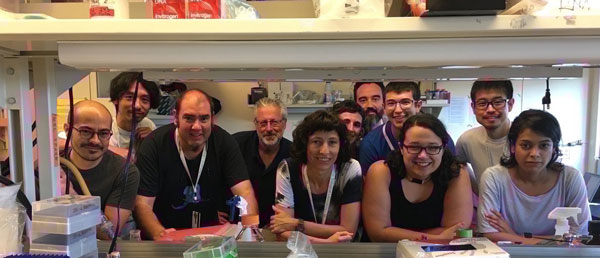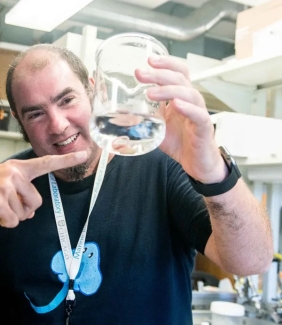José Luis Gómez-Skarmeta (1966–2020) | Nature Genetics

On 16 September 2020, when the news of José Luis Gómez-Skarmeta’s untimely passing broke, the scientific community was left in dismay. ... The field of developmental and evolutionary genomics had just lost a foundational figure, a mentor and one of its most prolific scientists. Read more of the article here.
Source: José Luis Gómez-Skarmeta (1966–2020) | Nature Genetics
José Luis Gómez-Skarmeta is greatly missed at the Marine Biological Laboratory. In 2015 and 2018, he shared an MBL Whitman Center lab with Neil Shubin, professor at University of Chicago and former MBL interim director, and Tetsuya Nakamura of Rutgers University. Using the little skate as a research organism, their lab sought the genetic elements - called enhancers - that governed the evolutionary transition from fins to limbs.
"The way different life forms are generated – why a fish doesn’t look like a human – is by using the same genes in different ways. These is done by regulatory elements in the genome that turn genes on or off during the life of the animal,” Gómez-Skarmeta said in an MBL article about their Whitman Center lab. “To a great extent, evolution is the history of changing the regulation of gene expression during development.”
 José Luis Gómez-Skarmeta (third from left), Tetsuya Nakamura (second from left) and Neil Shubin (fourth from left) in their collaborative Whitman Center lab in 2018. Credit: Megan Costello
José Luis Gómez-Skarmeta (third from left), Tetsuya Nakamura (second from left) and Neil Shubin (fourth from left) in their collaborative Whitman Center lab in 2018. Credit: Megan CostelloAt a memorial event on Oct. 27 for Gómez-Skarmeta, Shubin said of their collaboration, "It's safe to say that José Luis transformed my entire lab, even my own approach to science. To him science was not only filled with great questions, his passion was to find creative new answers. The joy José Luis derived from his science was utterly infectious. Discovery was always coupled with laughter and a passion for life in the lab. His deep generosity was evident every day as he patiently taught members of my own team new approaches and techniques plus they got to see him not just as an eminent scientist but as the best possible role model, a man who also cared deeply about his family. They are on our minds and hearts today. I hope they know just how much José Luis, his life was a gift to those who knew him. All of us are better for it."
